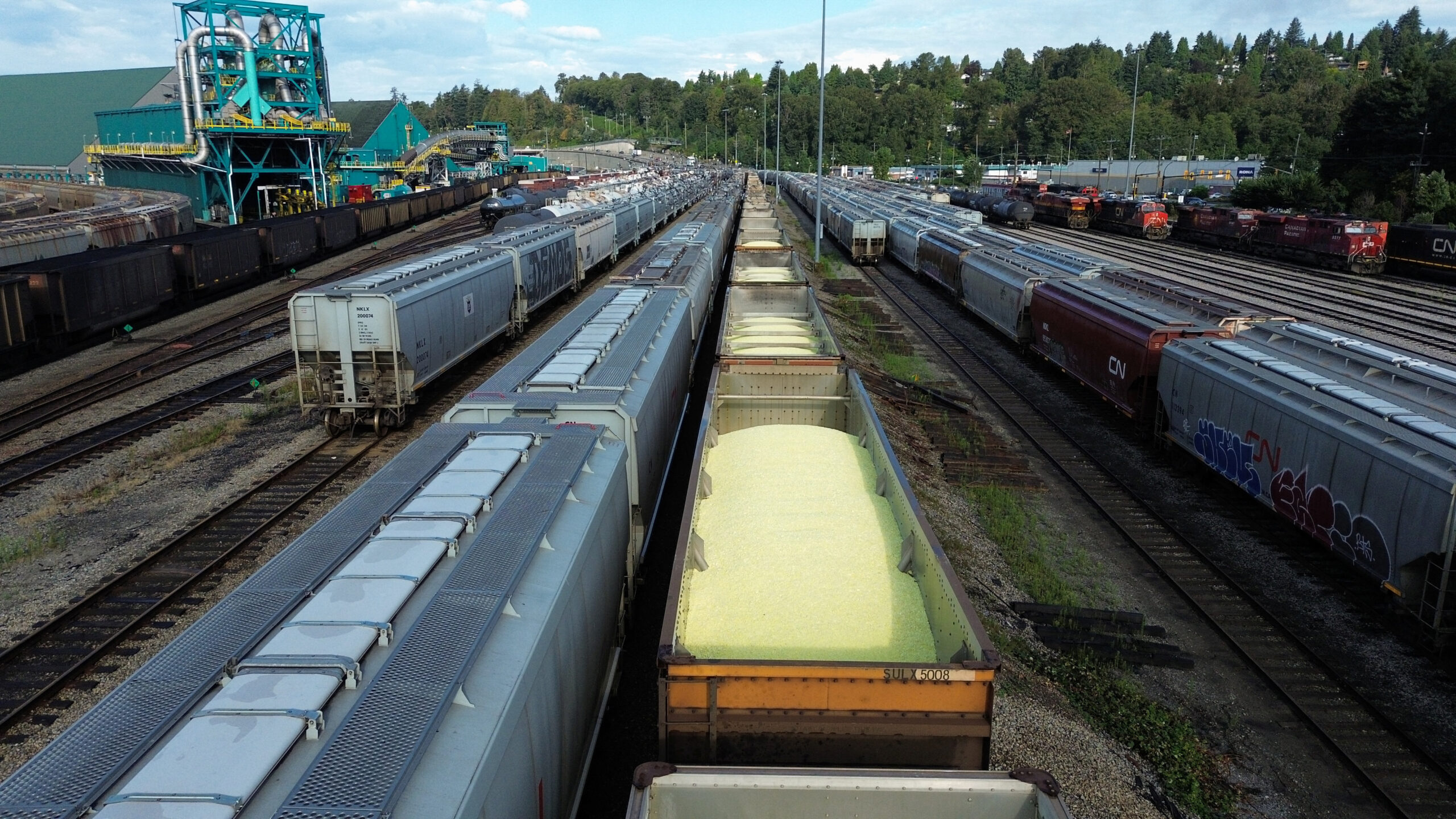
Canada rail shutdown: Prime Minister announces imminent action
Prime Minister Justin Trudeau stated on Thursday that the Canadian government will soon disclose its strategy for addressing a nationwide freight rail shutdown, emphasizing the urgency of a prompt resolution.
The stoppage would shortly have an impact across the country, Trudeau stated in a statement to reporters in Quebec.
An unprecedented simultaneous rail stoppage that could cause billions of dollars’ worth of economic harm and roil North American supply chains was initiated on Thursday when Canada’s top two railroads locked out more than 9,000 unionized workers.
The Teamsters union and the companies – Canadian National Railway (CNR.TO), opens new tab and Canadian Pacific Kansas City (CP.TO), opens new tab – each attributed the work stoppage to the other after numerous rounds of negotiations failed to produce an agreement.
According to business organizations and companies, the federal government should implement binding arbitration for the union and the companies in order to terminate the strike.
Trudeau stated, “We will have additional information to share in the near future regarding our efforts to ensure that the appropriate solution is identified and implemented promptly in order to address the economy.” However, he did not provide any further details.
The rail companies claim that they were compelled to implement the lockouts in order to prevent strikes at short notice. CN and CPKC were able to provide clients with advance notice to redirect their cargoes, ensure phased network shutdowns, and prevent hazardous products from becoming stranded due to the telegraphed lockouts.
Paul Boucher, president of the Teamsters Canada Rail Conference, stated that CN and CPKC have demonstrated a willingness to compromise rail safety and disintegrate families in order to increase their profits. He also mentioned that the negotiations were ongoing.
BINDING ARBITRATION
The Canadian government has thus far requested that the railroads and the union collaborate to negotiate a settlement, disregarding the requests of CN and CPKC for the government to utilize its authority to refer the disputes to binding arbitration.
Francois Laporte, president of Teamsters Canada, stated to reporters outside CN’s Montreal headquarters that he did not anticipate that the government would require workers to participate in arbitration.
Laporte stated in the presence of picketing CN workers, “We are of the opinion that this matter must be resolved at the bargaining table.” “We don’t believe in letting a third party decide what’s going to be the working conditions of these people.”
Unions generally oppose the use of arbitration to resolve contracts, as it diminishes their ability to withhold labor in order to negotiate more favorable terms.
Trudeau’s government has been supported by the left-leaning New Democratic Party, which has historically received substantial union support. The party has urged Trudeau to refrain from intervening in the disputes.
However, pressure and disruptions were intensifying.
The lockouts have caused significant inconvenience for tens of thousands of individuals who rely on specific commuter rail lines to travel to Toronto, Vancouver, and Montreal. This is due to the fact that all train movement on these CPKC-owned lines has been suspended indefinitely.
On the social media platform X, Ontario Premier Doug Ford stated, “The rail shutdown at CN and CPKC is already costing workers, transit users, and businesses across the country, and we cannot afford to let things get worse.”
Industries and business organizations have expressed concern regarding a potential strike, which they assert would result in “devastating consequences” and an increase in costs.
The stoppage is expected to significantly impede the transportation of petroleum products, chemicals, and automobiles, in addition to crippling cargoes of grain, potash, and coal.
STALEMATE
According to the union and companies, the work stoppage that has resulted in the absence of thousands of workers, including conductors, locomotive engineers, and yard workers, across Canada is primarily due to scheduling, labor availability, and demands for a more favorable work-life balance.
It follows the implementation of new duty and rest-period regulations by the Canadian government in 2023.
According to CN, the intention is to enhance productivity by allowing employees to remain on the job for a maximum of 12 hours, in accordance with government regulations.
However, the Teamsters are opposed to the relaxation of the conditions that currently require CN personnel to work shifts of up to 10 hours per day.
On the picket line, locomotive engineers from CN expressed their apprehension regarding the length of their work schedules and the companies’ intention to reduce the current 24-hour rest period after returning home by approximately half.
According to them, the majority of CN’s younger employees are required to work on call and respond to assignments with only two hours’ notice, including the packing of days’ worth of provisions for the road.
“What we want are working conditions that will make sure that the train operator, whether it is an engineer or conductor … gets their proper rest,” Laporte pointed out.
The strike has resulted in a decline in profits for both railroads, as noted by analysts.
Desjardins analyst Benoit Poirier wrote in a note this week that each day under a strike/lockout will have a negative impact on CN’s profit per share by approximately C$0.04 and CP’s by approximately C$0.02.
In midday trading, the shares of CN and CPKC were relatively unchanged.
($1 is equivalent to 1.3587 Canadian dollars)
All Categories
Recent Posts
Tags
+13162306000
zoneyetu@yahoo.com



